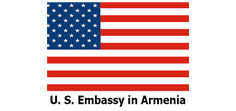On October 24, 2018, the Chairman of the RA NA Standing Committee on Foreign Relations Armen Ashotyan delivered a speech in the European Parliament.
During his speech, he touched upon the Armenia-European Union Comprehensive and Enhanced Partnership Agreement (CEPA) signed in November 2017 and its implementation by the new government, as well as talked about the new Electoral Code.
According to Ashotyan, the Prime Minister Nikol Pashinyan’s government did not include the CEPA in the government program. Meanwhile, the government program adopted in June states:
“In the foreign policy, the government will make efforts to implement the Comprehensive and Enhanced Partnership Agreement with the EU and will start a dialogue on the EU visa liberalization for Armenian citizens. Deepening of cooperation with European countries is an important direction of the foreign policy of the new government of Armenia.”
Referring to the new Electoral Code, Ashotyan mentioned, “it has been worked out without the involvement of parliamentary forces.” However, not only all the forces represented in the National Assembly participated in the drafting of the Electoral Code, but also the extra-parliamentary forces.
Ashotyan also insisted, “The Chairman of Venice Commission does not welcome significant amendments to the Electoral Code on the brink of elections.” This statement is partially true. The Venice Commission does not encourage amendment to the Electoral Code a year before the elections. However, the chairperson of the commission, Gianni Buquicchio, gave the EC a “mostly positive” assessment, noting “a special situation is created in Armenia that requires early elections.” He noted that their “reservations are not that significant if there is a consensus on the changes between the political forces.” It is a disputable matter and a topic for political speculation whether there is a consensus on changes, or not. Ashotyan strongly rejects the view that there is a consensus. Apparently, only the Republican Party is against the amendments to the Electoral Code. The word “consensus” may mean both the unanimous consent and the consent of the prevailing group.
Hovhannes Nazaretyan

 FACTOMETER
FACTOMETER









